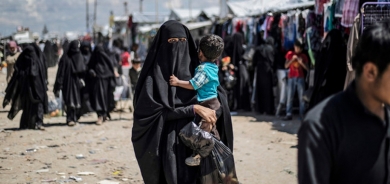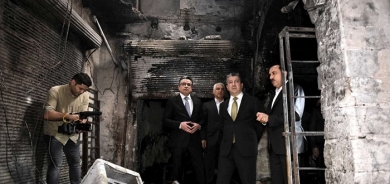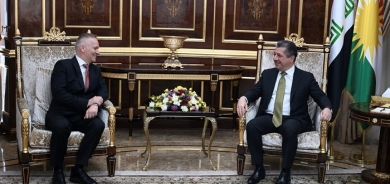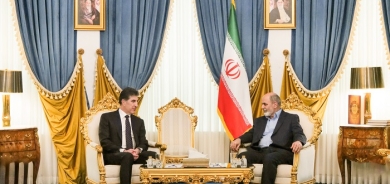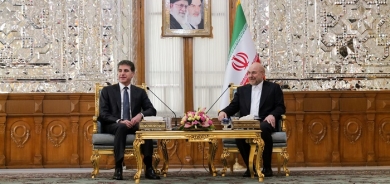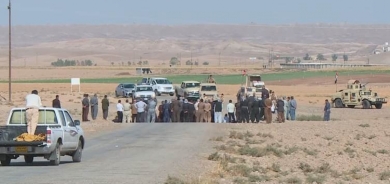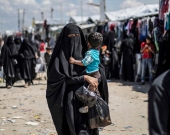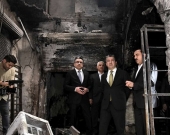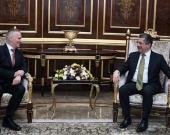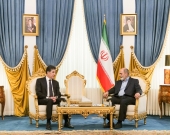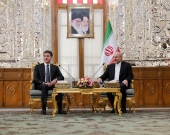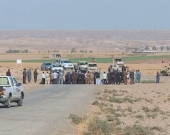Kurdistan Region commemorates the 25th anniversary of Halabja gas attack
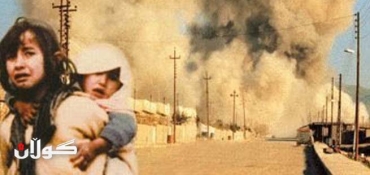
In a speech marking the occasion, Kurdish regional Prime Minister Nechirvan Barzani called for March 16 to be recognized as an international day against chemical weapons on the UN and the international community.
Hundreds of people joined in sombre commemorations on Saturday for the 25th anniversary of Saddam Hussein's gassing of thousands of Kurds in the town of Halabja near Iraq's border with Iran.
Many of those paying their respects held pictures of some of the estimated 5,000 people who were killed, most women and children, in what is now thought to have been the worst ever gas attack against civilians.
Others gathered around the martyrs' monument in Halabja, some holding Kurdish flags.
Those commemorating the anniversary observed a minute's silence at 11:35 am (0835 GMT), the time in 1988 when Saddam's forces began gassing the town.
The rope with which Ali Hasan al-Majid , Saddam Hussein's cousin who ordered the ordered the bombing of Halabja and was nicknamed “Chemical Ali,” was executed by hanging was brought to the Memorial Museum in Halapja.
In memory of the massacre’s anniversary, life stopped for five minutes in the Iraqi Kurdistan capital of Erbil at 11:36, the hour at which the first bomb was dropped. As citizens stopped in place out of respect when the sirens were heard, vehicles also stopped in traffic.
The Martyr Minister of the northern Iraq region, Aram Ahmet, explained to the press that the rope used to execute “Chemical Ali” was delivered to the director of Halabja Memorial, Ala Talabani, this morning.
It has been 25 years since the massacre that took place in the Kurdish town of Halabja in Iraqi Kurdistan during the dictatorship of Saddam Hussein, who headed Iraq's Baathists. On March 16, 1988, Halabja became the scene of the largest-scale chemical attack on a civilian population in history. That morning, Iraqi warplanes flew over the city and dropped chemical bombs on the thousands of unsuspecting people living there. Over 6,000 people died immediately as a result of the chemical attack, and it has been estimated that a further 7,000 were injured or suffered long-term illnesses.

